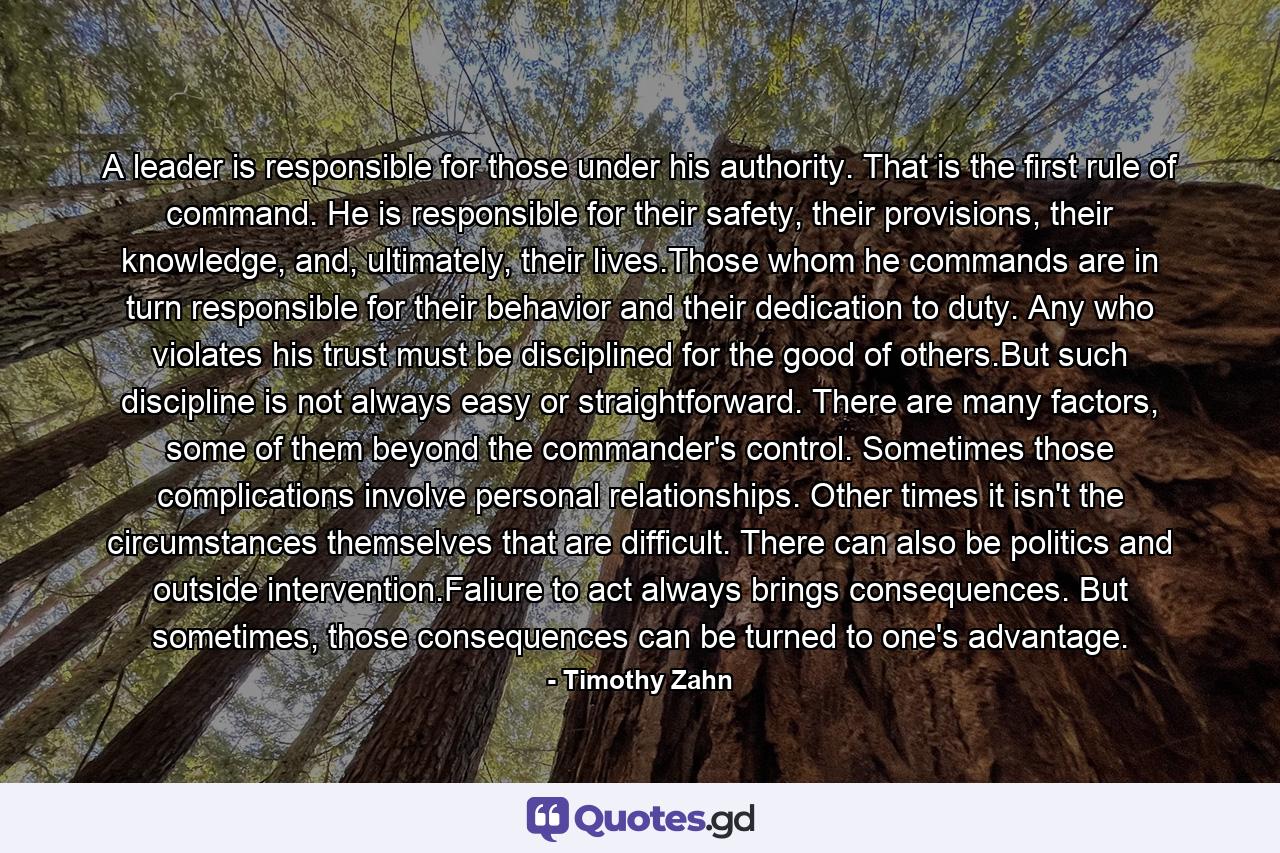A leader is responsible for those under his authority. That is the first rule of command. He is responsible for their safety, their provisions, their knowledge, and, ultimately, their lives.Those whom he commands are in turn responsible for their behavior and their dedication to duty. Any who violates his trust must be disciplined for the good of others.But such discipline is not always easy or straightforward. There are many factors, some of them beyond the commander’s control. Sometimes those complications involve personal relationships. Other times it isn’t the circumstances themselves that are difficult. There can also be politics and outside intervention.Faliure to act always brings consequences. But sometimes, those consequences can be turned to one’s advantage.
